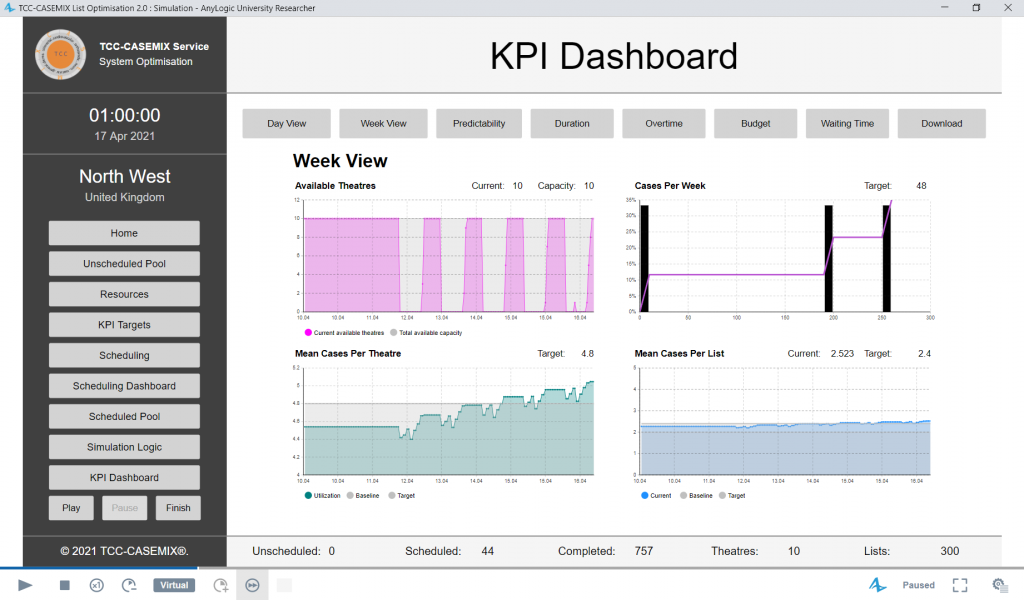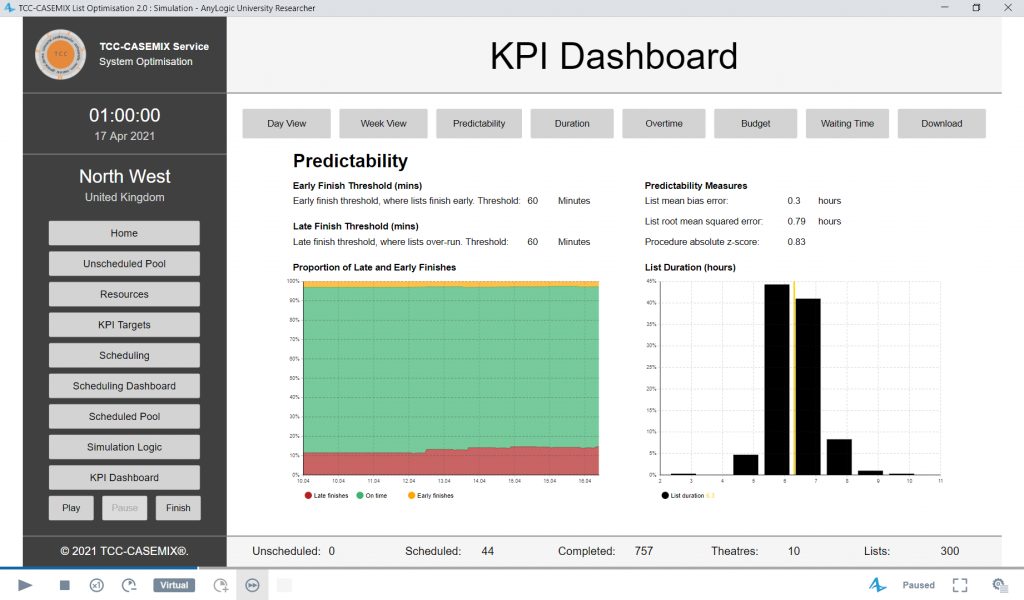TCC-CASEMIX secures surgical transformation joint working agreement with the Northern Care Alliance NHS Group.
Spin-off business, from The Conclude Consultancy, TCC-CASEMIX has been appointed to lead ‘Project Meteor’, a transformation programme to drive 20% improvement in surgical productivity.
A year after winning the Innovate UK SMART Grant, one of the UK’s most prestigeous and competitive grant awards [3-5% success rate], TCC-CASEMIX brings to market a transformational new capability in the delivery of elective surgical care. The Northern Care Alliance (NCA), with Salford Royal NHS Foundation Trust, is a pioneer in digital health. At a time of desperately long surgical waiting lists, this capability could not be more timely.
Head of Research and Innovation at the NCA , Mrs Natalie Garratt says: “This is all the more remarkable because the transformation programme was conceived just as COVID-19 hit the NHS. The team had to be innovative and adaptable in ways that we would have never thought to be possible – but under the leadership of Dr Bacon, we have achieved something very special, that will impact patient care for years to come”.
The innovation behind TCC-CASEMIX is a transformation in digital health, using the power machine learning algorithms applied to a whole new dataset that has never previously existed. The discovery enables patients to be managed through waiting lists with a radical new process, that completely changes the way in which surgical services are planned and delivered.

It is a challenge that has been at the centre of a myriad of government enquiries, independent reviews, and commissions sponsored either by HM Treasury, Department of Health, Kings Fund or Government sponsored organisations, such as Getting It Right First Time (GIRFT). All have all failed to identify the root cause of this ‘open sore’ in our health system – one that causes extensive human suffering, stress, and anxiety. In the worst cases, patients become inoperable, because they have had to wait so long for their operation.
Dr Bacon says: “The key to our success lays in our ability to correlate all surgical risk factors with the correseponding impact on surgical procedure duration – measured at a highly granular level. It means that rather than a ‘one size – fits all’ strategy, we forecast procedure duration that is unique for every patient. Achieving predictability of procedure duration is central to achieving a transformation in productivity because it means more patients can be packed onto a theatre list, without fear of them being cancelled. “

TCC-CASEMIX Mathematical Modeller, Jack Morewood says: “We are now able to identify what the latent capacity is for any surgical services provider, which means that it is now possible to identify surgical capacity across a whole region , and to direct patients accordingly. “
The innovation will have profound consequences. With the advent of the new Integrated Care Systems across the NHS, the ability to match demand and capacity should be a major tool in their armoury. It will avoid a peverse situation where theatres are standing idle simply because the latent capacity is so poorly managed.
At the Northern Care Alliance, the strategy is to utilise the latent capacity in day case surgery, and by this means bed constraint becomes much less of a problem. The patient’s will be cared for in their homes. This aligns very well with the NCA strategy to utilise community care resources in a whole new way. Again digital technologies play an important role. The plan is to expand the concept of the virtual ward, developed during COVID-19. TCC-CASEMIX will deliver real-time patient vitals data and other biometrics straight to mobile devices of the community care team.
Tweet ThisAs Mrs Garratt observes: “Being able to manage the additional productivity through day case surgery for carefully selected patients is the key to making this strategy work.”

Follow us
on Twitter